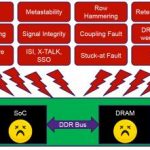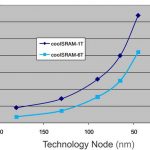What happens when you get a panel of four executives together with an industry-leading journalist to discuss tradeoffs in IoT designs? After the obligatory introductions, Ed Sperling took this group into questions on power, performance, and integration.… Read More
Semiconductor Intellectual Property
LTE Trajectory Places High Demands on Baseband Processing
LTE stands for Long Term Evolution, and that is exactly what is happening. At the Linley Mobile & Wearables Conference 2016 we received a preview of what is coming in the mobile and wearable markets. LTE is one of the biggest drivers in this entire domain. There was much discussion about the LTE Release 12 and how it increases bandwidth,… Read More
Radio Integration – the Benefits of Built-In
It’s always a pleasure when a vendor gives a really informative, vendor-independent presentation on what’s happening in some domain of the industry and wraps up with (by that point) a well-deserved summary of that vendor’ solutions in that space. Ron Lowman did just that at the Linley conference on Mobile and Wearables, where … Read More
Why using new DDR4 allow designing incredibly more efficient Server/Storage applications?
The old one-size-fits-all approach doesn’t work anymore for DDR4 memory controller IP, especially when addressing the enterprise segments, or application like servers, storage and networking. For mobile or high end consumer segments, we can easily identify two key factors: price (memory amount or controller footprint) … Read More
1-T SRAMs in high-density, portable applications
For SoCs designed for various applications such as mobile, automotive, wearable computing, gaming, virtual reality, PC, imaging, security, and IOT applications, it is incredibly important to keep area (cost) and power as low as possible. Considering the growing percentage of chip area used for memory, it makes sense to choose… Read More
SoC QoS gets help from machine learning
Several companies have attacked the QoS problem in SoC design, and what is emerging from that conversation is the best approach may be several approaches combined in a hybrid QoS solution. At the recent Linley Group Mobile Conference, NetSpeed Systems outlined just such a solution with an unexpected plot twist in synthesis.
The… Read More
The Appeal of a Multi-Purpose DSP
When you think of a DSP IP, you tend to think of very targeted applications – for baseband signal processing or audio or vision perhaps. Whatever the application, sometimes you want a solution optimally tuned to that need: best possible performance and power in the smallest possible footprint. These needs will continue,… Read More
SMART sensors with OTP memory for the IIoT
A few years back before IoT became the buzzword, the industrial automation community had already talking about “smart sensors” since the mid-1990s. The impetus for those discussions was IEEE 1451, a family of standards for adding intelligence and wireless communications to sensors so they could be incorporated into field networks.… Read More
Coming Up Next: ARM IoT ASICs!
The History of ASICs is well documented in our book “Fabless: The Transformation of the Semiconductor Industry” which illustrates the earliest forms of design start driven collaboration. The history of ARM is well documented in our book “Mobile Unleashed” which illustrates an entire company culture based on design start driven… Read More
Why did Softbank pay so much for ARM? Because it’s worth it
Softbank’s acquisition of ARM Holdings was not only unexpected, but also the valuation was astonishingly high. Softbank is acquiring ARM for $32.2B or 23x CY15 revenue and 46x CY16 earnings. This was a 46% premium to the prior day’s closing price before the announcement of the acquisition. The questions to ask are: Why is Softbank… Read More







Website Developers May Have Most to Fear From AI